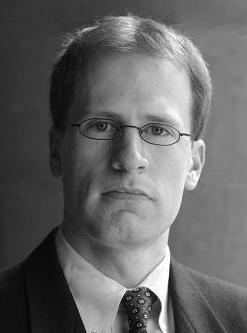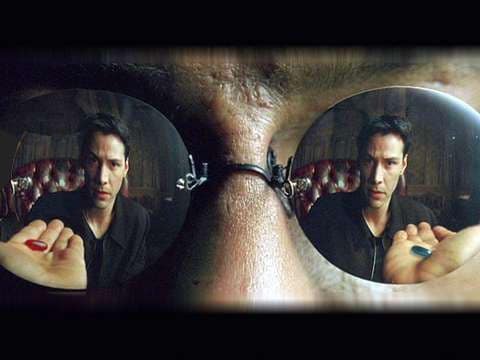So let me ask you something. How many times have you woken up in a cold sweat after a terrible nightmare? I'm sure that you've had this unpleasant experience at least a few times. But how about waking up after the sweetest dream just to realise the sad truth that it's not a dream? I bet it happened to you many times as well. But why am I asking you this? Simply because dreams can help us understand how easy it is to get tricked by something that is not real. After all, some dreams seem so realistic that sometimes you forget which events happened in reality and which you've dreamed off.
So if dreams are so realistic how can we really know if we are not dreaming now? Or even better how can we know that we are not living in a simulated reality, like the matrix or even a video game? As stupid as it sounds, these theories are gaining some momentum in the world of philosophy and science these days. And when you really think about it, there seem to be no simple arguments against these theories. After all, illusions can seem as realistic as reality is. So let's look a little closer at the idea of a simulated reality.
Rene Descartes:
Source
As we've seen in the last article, the idea that reality might be an illusion was popularized by the famous work of Rene Descartes called Meditations on First Philosophy. The modern version of a similar argument that reality is just a computer simulation was proposed by Swedish philosopher Nick Bostrom in 2003. The simple version of Bostrom's argument goes as follows:
i) It is possible that an advanced civilization could create a computer simulation which contains individuals with artificial intelligence.
ii) Such a civilization would likely run many, billions for example, of these simulations (just for fun, for research and other similar reasons).
iii) A simulated individual inside the simulation wouldn’t necessarily know that it is inside a simulation.
Then the ultimate question is — if one accepts that the above premises are at least possible — which of the following is more likely?
a. We are the one civilization which develops AI simulations and happens not to be in one itself?
b. We are one of the many (billions) of simulations that has run?
In greater detail, his argument attempts to prove the trichotomy, either that:
i) Intelligent races will never reach a level of technology where they can run simulations of reality so detailed they can be mistaken for reality (assuming that this is possible in principle);
ii) Races who do reach such a sophisticated level do not tend to run such simulations;
iii) We are almost certainly living in such a simulation.
Nick Bostrom:
Source
This argument goes beyond scepticism, (i.e. we cannot be sure if reality is not an illusion) and claims that the odds are that we are actually living in a virtual reality. What's even more interesting that some philosophers believe that eventually beings in a such a simulation would become so advanced that they would create their own simulations, so we could be living somewhere in this web of simulations. But let's forget these crazy ideas for a while and let's imagine that we are indeed living in an advance computer simulation created by some advanced alien race or humans of the future. Would it be possible to somehow detect that our reality is just a simulation?
If you had a choice to find out whether our reality is real, would you choose to know?
Source
Perhaps science hides the answer to this question. Physicist Richard Feynman once said that physics is like sitting in a corner of a huge chess board. Once in a while you see some chess figures moving in a specific way, but you can't see the whole board. So you observe the movement of the figures until you understand how every figure moves. So maybe we are like these lone observers on a huge chess board, which we call the universe. By studying the laws of the universe we are moving closer to understanding the real meaning of it. That's exactly why some scientists believe that if we had the so called theory of everything, which would describe all the laws of the universe in one equation, we could find the meaning of the universe and possibly understand its purpose and we might even find some clues about the architects of the virtual reality that we call our universe.
Another clue about the non-reality of our world would be the so called bugs or system errors of the simulation. These bugs would probably appear as physical anomalies, which we couldn't explain, and would probably occur very rarely. On the other hand, one might argue that a sufficiently powerful simulation would monitor the thoughts of the inhabitants of the virtual reality and delete their memories after the discovery of a bug. Another possibility is that these bugs are a part of our reality, for example some physical anomalies or even some events in our everyday life were never supposed to happen, but they were left in the simulation as deleting them would cause suspicion
Another possibility is that there might be so called Easter eggs (secret messages left by the designers). For example there are many enthusiastic mathematicians who are looking for clues and hidden messages in the numbers of natural constants like pi. The problem with this idea is that it depends on an assumption that the creators want us to find out about the fact that we are living in a simulated reality. Nevertheless, the idea of Easter eggs sounds amazing. It would be a great scenario for a sci-fi movie.
Nick Bostrom about his ideas:
There are many ideas regarding the processing power of the computers that supposedly simulated our reality. Assuming they don't have infinite processing power, we can conclude that there could be a limit to the processing power, which would materialize similarly to pixels in video games that we create. Old video games made for low processing power computers look grainy as you can see every pixel. Whereas modern computers with high processing power make it hard to distinguish between thousands of pixels. Similarly, we could find similar phenomena in the microscopic world. There are scientists who actually think that Heisenberg uncertainty principle is evidence for the limit of processing power of the computers, which simulate our reality.
These are all very interesting ideas, but is it, at least in theory, possible to check them? It seems that the only chance we have is to observe the laws of physics and look for some clues, which would indicate that our universe is just a simulation. Of course one might say that the designers could create our reality in such a way that it wouldn't be possible to detect that it's a simulation from the inside. Still there are actually scientists, who believe that there are some similarities between the laws of the universe and the computer software codes. But, whether it's just another crazy idea or it's actually just crazy enough to be true, nobody knows. Well, only time will tell.
So if dreams are so realistic how can we really know if we are not dreaming now? Or even better how can we know that we are not living in a simulated reality, like the matrix or even a video game? As stupid as it sounds, these theories are gaining some momentum in the world of philosophy and science these days. And when you really think about it, there seem to be no simple arguments against these theories. After all, illusions can seem as realistic as reality is. So let's look a little closer at the idea of a simulated reality.
Rene Descartes:
Source
As we've seen in the last article, the idea that reality might be an illusion was popularized by the famous work of Rene Descartes called Meditations on First Philosophy. The modern version of a similar argument that reality is just a computer simulation was proposed by Swedish philosopher Nick Bostrom in 2003. The simple version of Bostrom's argument goes as follows:
i) It is possible that an advanced civilization could create a computer simulation which contains individuals with artificial intelligence.
ii) Such a civilization would likely run many, billions for example, of these simulations (just for fun, for research and other similar reasons).
iii) A simulated individual inside the simulation wouldn’t necessarily know that it is inside a simulation.
Then the ultimate question is — if one accepts that the above premises are at least possible — which of the following is more likely?
a. We are the one civilization which develops AI simulations and happens not to be in one itself?
b. We are one of the many (billions) of simulations that has run?
In greater detail, his argument attempts to prove the trichotomy, either that:
i) Intelligent races will never reach a level of technology where they can run simulations of reality so detailed they can be mistaken for reality (assuming that this is possible in principle);
ii) Races who do reach such a sophisticated level do not tend to run such simulations;
iii) We are almost certainly living in such a simulation.
Nick Bostrom:
Source
This argument goes beyond scepticism, (i.e. we cannot be sure if reality is not an illusion) and claims that the odds are that we are actually living in a virtual reality. What's even more interesting that some philosophers believe that eventually beings in a such a simulation would become so advanced that they would create their own simulations, so we could be living somewhere in this web of simulations. But let's forget these crazy ideas for a while and let's imagine that we are indeed living in an advance computer simulation created by some advanced alien race or humans of the future. Would it be possible to somehow detect that our reality is just a simulation?
If you had a choice to find out whether our reality is real, would you choose to know?
Source
Perhaps science hides the answer to this question. Physicist Richard Feynman once said that physics is like sitting in a corner of a huge chess board. Once in a while you see some chess figures moving in a specific way, but you can't see the whole board. So you observe the movement of the figures until you understand how every figure moves. So maybe we are like these lone observers on a huge chess board, which we call the universe. By studying the laws of the universe we are moving closer to understanding the real meaning of it. That's exactly why some scientists believe that if we had the so called theory of everything, which would describe all the laws of the universe in one equation, we could find the meaning of the universe and possibly understand its purpose and we might even find some clues about the architects of the virtual reality that we call our universe.
Another clue about the non-reality of our world would be the so called bugs or system errors of the simulation. These bugs would probably appear as physical anomalies, which we couldn't explain, and would probably occur very rarely. On the other hand, one might argue that a sufficiently powerful simulation would monitor the thoughts of the inhabitants of the virtual reality and delete their memories after the discovery of a bug. Another possibility is that these bugs are a part of our reality, for example some physical anomalies or even some events in our everyday life were never supposed to happen, but they were left in the simulation as deleting them would cause suspicion
Another possibility is that there might be so called Easter eggs (secret messages left by the designers). For example there are many enthusiastic mathematicians who are looking for clues and hidden messages in the numbers of natural constants like pi. The problem with this idea is that it depends on an assumption that the creators want us to find out about the fact that we are living in a simulated reality. Nevertheless, the idea of Easter eggs sounds amazing. It would be a great scenario for a sci-fi movie.
Nick Bostrom about his ideas:
There are many ideas regarding the processing power of the computers that supposedly simulated our reality. Assuming they don't have infinite processing power, we can conclude that there could be a limit to the processing power, which would materialize similarly to pixels in video games that we create. Old video games made for low processing power computers look grainy as you can see every pixel. Whereas modern computers with high processing power make it hard to distinguish between thousands of pixels. Similarly, we could find similar phenomena in the microscopic world. There are scientists who actually think that Heisenberg uncertainty principle is evidence for the limit of processing power of the computers, which simulate our reality.
These are all very interesting ideas, but is it, at least in theory, possible to check them? It seems that the only chance we have is to observe the laws of physics and look for some clues, which would indicate that our universe is just a simulation. Of course one might say that the designers could create our reality in such a way that it wouldn't be possible to detect that it's a simulation from the inside. Still there are actually scientists, who believe that there are some similarities between the laws of the universe and the computer software codes. But, whether it's just another crazy idea or it's actually just crazy enough to be true, nobody knows. Well, only time will tell.


 3:55 PM
3:55 PM
 silentbob14
silentbob14




 Posted in:
Posted in: 

0 comments:
Post a Comment